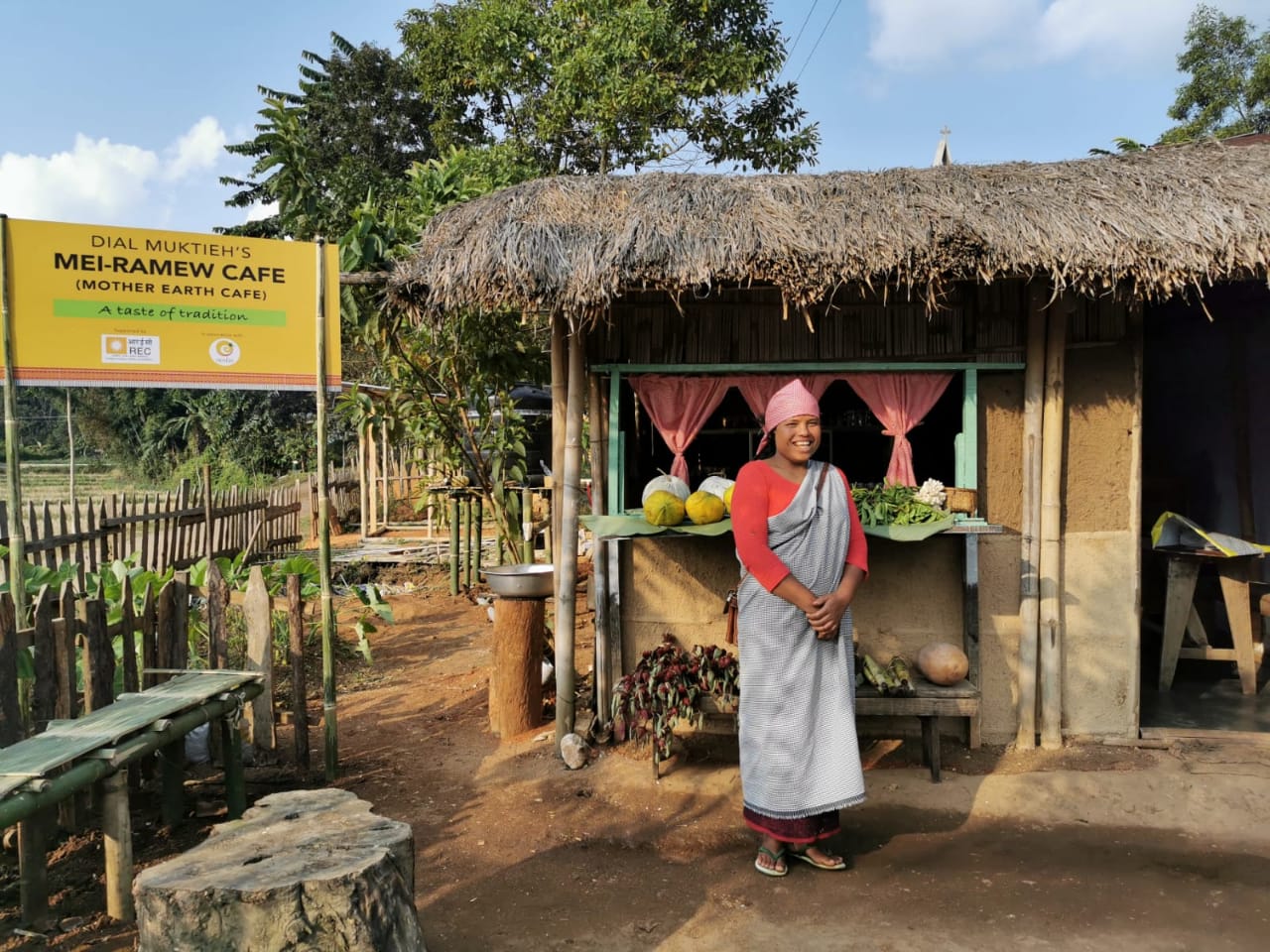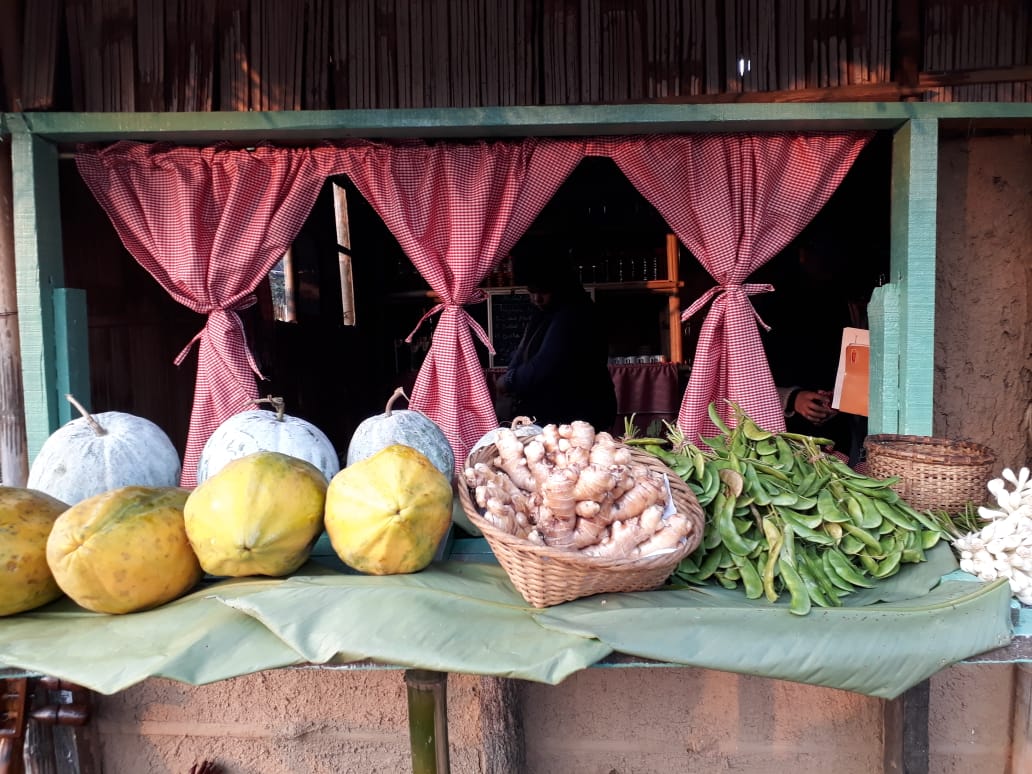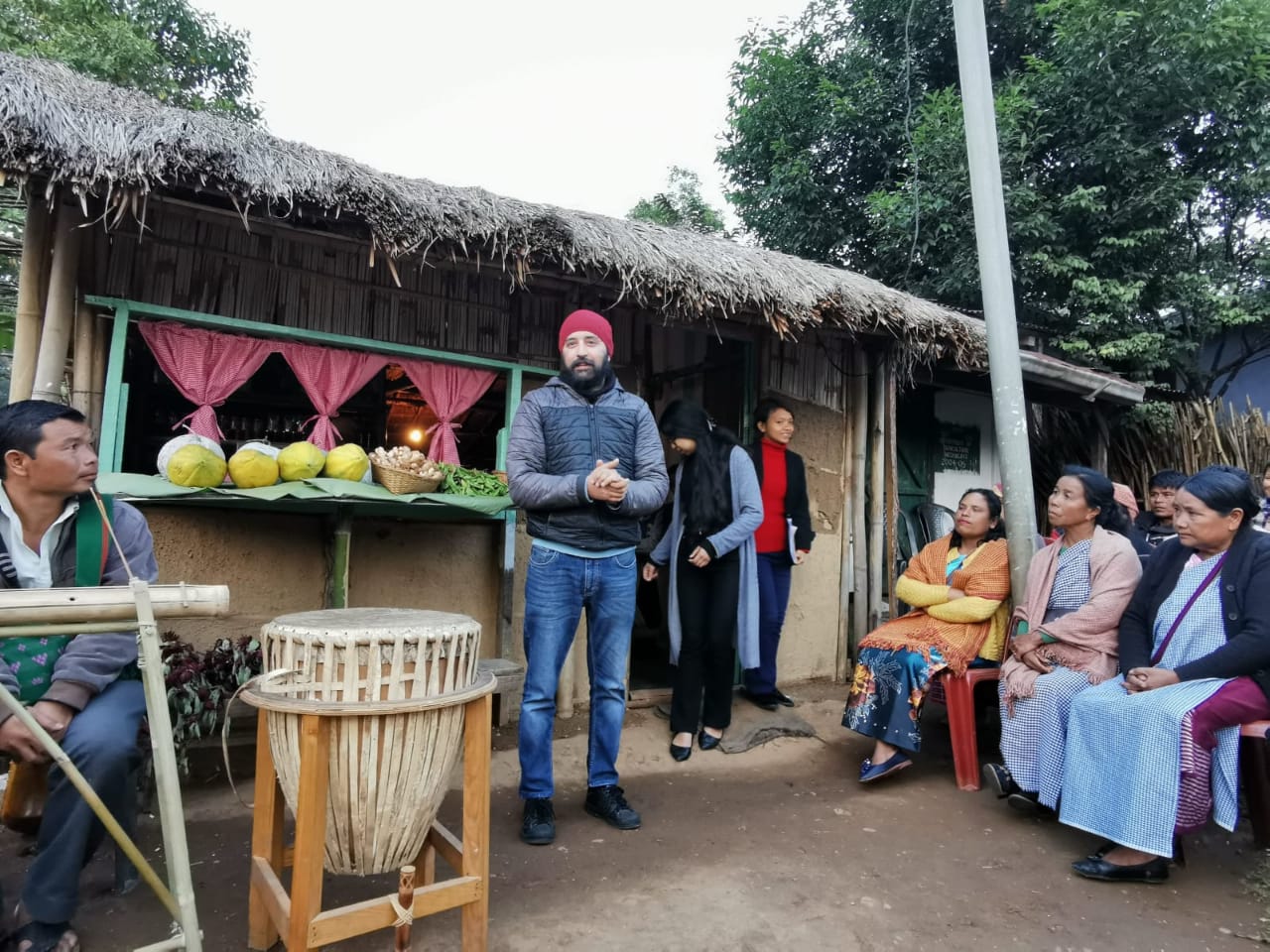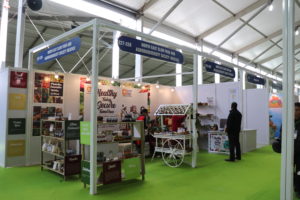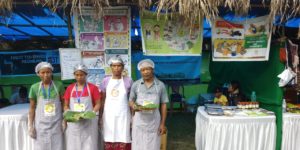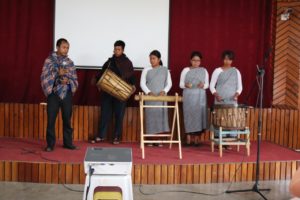Dial Muktieh’s Mei Ramew Cafe
Dial Muktieh, who aims to promote traditional food and innovate on traditional recipes using local resources, is a hardworking and enterprising woman from Khweng, Ri-Bhoi. Born on February 14, 1980, she has a high knowledge of her surroundings as she grew up in the farming community and spent her childhood amidst the rich biodiversity of Khweng. In the year 2013, she opened her food stall where she served local snacks and traditional food.
She is also a member of the Nangkyrsoi Self-Help Group that specialises in the value addition of fruits and vegetables. Her husband, Anaster Diengdoh, supports her in all her endeavours and helps her run the shop. Since her association with NESFAS, Dial was further motivated to transform her food stall into a Mei-Ramew Café (Mother Earth Café).
Her expertise in cooking was well appreciated at several events (North East Innovators Meet and #GoVote Campaign of the state Election Commission). She sources the ingredients from local farmers and her kitchen garden, which is attached to the café. Her cafe is also a selling point for the products of SHG like candies made of sohkymphor (papaya), sying (ginger) and sohmylleng (amla), pickles of local fruits, and surplus produce of local farmers.Unique about the Mei-Ramew cafe is the menu that is changed according to the seasonal availability of the food crops. On the 12th December 2019, the cafe was officially known as Kong Dial Muktieh’s Mei Ramew Cafe. Through the cafe, she is determined to spread the message of the importance of traditional food and innovate on traditional recipes using local resources.
Inauguration of Mei Ramew Cafe
On the 12th of December, 2019, Kong Dial’s food stall was officially called Kong Dial’s Mei Ramew Cafe. Convinced and motivated by the possibility of her cafe becoming a centre for culinary experience for the Khasi Bhoi food, Kong Dial have adopted to the principles of a Mei Ramew Cafe. The inauguration programme graced by the headman , Mr. D.R Jalong as the chief guest and attended by key members of the community including the Executive member of the village, Seng Longkmie, Seng Samla and PGS members. The event was inaugurated by the headman and Mr. Janak along with owner Kong Dial and Bah Anaster Diengdoh. The programme began with a prayer by Elder P. Mujai. Guests were facilitated with Roselle jam and cinnamon as token of appreciation. This was followed by a welcome address from NESFAS, thanking the village for their constant support and congratulating Kong Dial on her achievement. The concept of Mei Ramew Cafe was shared highlighting the opportunity for livelihood through Agrobiodiversity and for promoting gastronomy tourism in the region. Bah Lastnokhel Jalong, a resident of the village and a frequent visitor to the cafe, encouraged Kong Dial to maintain the standards of the cafe. He also urged the youth to follow in Kong Dial’s footstep and to learn from her hard work and entrepreneurship skill. He stated that if one is determined, all things are achievable, and shared the Mei-Ramew cafe is on such opportunity where one can start up with minimum investment. Kong Redian Syiem, spoke on behalf of the Seng Longkmie, congratulating Kong Dial and also how the cafe is a reflection of the rich biodiversity of the village. She applauded NESFAS for the constant support to the community that encourages them to appreciate and preserve their indigenous food and knowledge. The chief guest, Bah D.R. Jalong, the headman of Khweng, hailed NESFAS as a close friend and thanked the organisation for the consistent effort of uplifting the Indigenous people. The iterated that the two Mei Ramew Cafes in Khweng is the pride of village and the responsibility of every community member to support and help it scale, and promote it. He spoke of the danger of ignoring our rich culture especially our food and how the cafe is one of the means to ensure that we utilise the local and organic produce.
The youth and the PGS member presented a self composed song that celebrated the rich biodiversity, traditional food and NESFAS as its theme. Kong Dial shared her experience and spoke that never in her dream did she imagined of receiving such accolade and owning a Mei-Ramew Cafe. She fondly remembers her grandmother who was pivotal in fueling Kong Dial’s interest in cooking, and how working with NESFAS have given her the opportunity to explore and improve her skills. Bah Anaster Diengdoh, in his vote of thanks, extended his gratitude to NESFAS and the community members who have always stood in support of the cafe. He thanked Kong Plantina Mujai, for being the inspiration behind Kong Dial’s Mei-Ramew Cafe; Kong Dial was often invited to accompany Kong Plantina whenever she had to undertake catering to events. These have contributed to grooming her skills and for instilling a better understanding of traditional food and importance of promoting it. The NESFAS apron and a certificate was officially handed to Kong Dial. Roselle juice, varieties of tubers and yams were served with Roselle jam which was prepared by the SHGs. Main course included Ja syrtah (rice cooked in chicken broth), pumkin curry, banana flower salad, bamboo steamed paddy fish with bamboo shoot, and wild edibles.
One does not become a Mother Earth Cafe simply because one serves food to the people, but what distinguish our Mei-Ramew Cafe is the essence of belonging to nature and people and the pride of being indigenous. The Mei-Ramew Cafe as said is not a cafe of a single person but it’s a cafe for the community. There are several stakeholders involved in the value when looked at the backward linkages. The cafe will not exist if there are no farmers to produce the crops that are unique to Bhoi cuisine, it will not survive if there are no foragers, if there are no community members who give constructive criticism to improve the quality of food. Similarly the cafe is an important part of the socio economic of the village. The cafe is the centre for people to connect as a community. The Mei Ramew Cafe brings together different people and it is an opportunity for the community to informally have discussion on various issues. The Mei-Ramew Cafe is a point of sale for farmers, where surplus products are being sold. Most importantly it is an opportunity to promote our rich biodiversity through the food, and educate customers to eat a healthy and nutritious food. It is the highlight of the village the would bring in economy of the village, because gastronomy tourism is on the rise. Lastly, the success of the cafe would need the constant support of the community.

